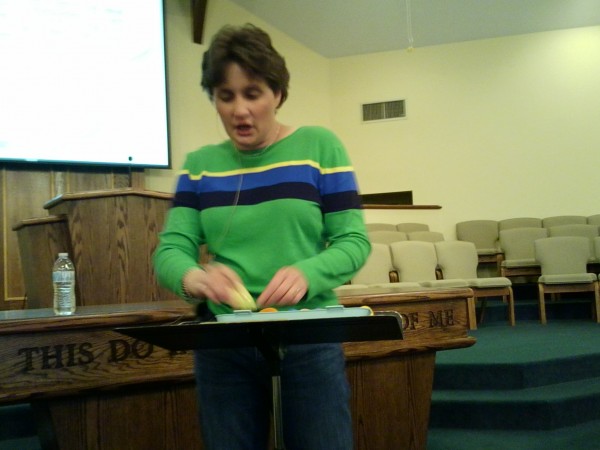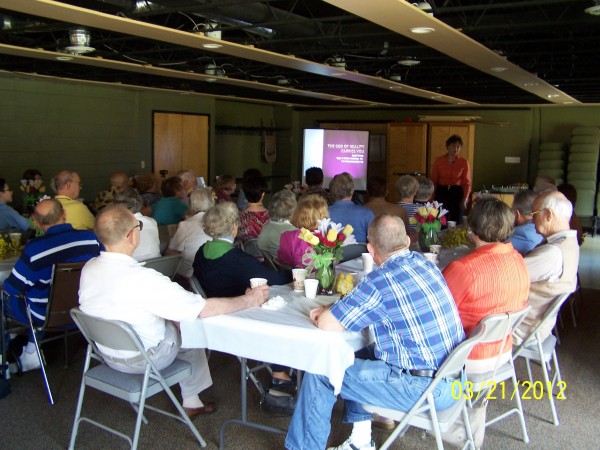“In the same way, the Spirit helps us in our weakness. We do not know what we ought to pray for, but the Spirit himself intercedes for us with groans that words cannot express.” – Romans 8:26 (NIV)
I am not ashamed to admit that, at times, I groan. From deep inside, wells up a feeling of discontent, of longing, of incompletion, and of frustration. God made me to revel in all His glory, but my broken, sinful state keeps me from complete satisfaction. Something is not quite right, and the deepest part of me knows it is so. Therefore, I groan.
God tells us in Romans 8:22 that the entire creation is in a state of uneasiness. The universe itself knows something better is around the corner and that the current state of affairs is difficult. And so it follows that Romans 8:23 (ESV) declares our predicament, “We ourselves, who have the firstfruits of the Spirit, groan inwardly as we wait eagerly for adoption as sons, the redemption of our bodies.” Did you catch it? We are saved, but our final completion is on the horizon. God is going to make these sin prone bodies new someday! Until spirit, body, and universe are totally remade by Jesus, we are in a condition of unrest. Hope is in us – but not fully realized. We live between the tension points of what is and what will be.
Enter in one of the most beautiful revelations of the grace of God. We are groaning right along with creation because of the yet-to-be nature of salvation. We long for sin to be knocked down, for Satan to be consummately defeated, and for all the nasty effects of sinfulness to be eradicated. As we do, we sigh. Our hearts ache. And what does God do? Romans 8:26 (NIV) promises, “In the same way, the Spirit [of God] helps us in our weakness. We do not know what we ought to pray for, but the Spirit himself intercedes for us with groans that words cannot express.” Such love!” I groan; so God groans too!
Clearly, God’s Spirit is interceding for us Christians with groans that no words can accurately interpret. When we do not know how to pray, we need to just go to God with outstretched arms, bended knee, and a simple cry. When we have no words, God has groans. He knows our hearts and circumstances completely – to the smallest detail. (Psalm 139:1) There
are times when God just wants us to yield our confused minds and broken hearts to Him without trying to tell Him what needs to be done. God does not need our advice, but He desires the sincere confession of our insufficiency. Amazingly, God enters into our groaning; He takes on our well-founded discontent with the world as it now is. He does not have to identify with us, but He chooses to. Mysteriously, God decides to groan through us when we humbly ask His Spirit to intervene.
Romans 8:26 begins with the fact that God’s intention during this type of prayer is to help us in our weakness. Amazingly, the Greek root behind the word “weakness” here implies six things; as outlined below:
-
1. God helps us with our native frailty of body. I grow tired and discouraged as I come to the end of a day and as I grow older. God is there – by the power of sincere prayer – to help me gain the strength I need to live with a body that is weak and limited.
-
2. God helps us in our feebleness of health and in our sickness. When I am frustrated by illness of a temporary or chronic nature, God’s Spirit groans through me for both healing and the power to wait for healing as God works His good through my affliction.
-
3. God helps us to understand or grasp things currently misunderstood. My brain has weakness, and I need the Lord to supernaturally guide my intellect. His Spirit grants me wisdom I could not gain on my own.
-
4. God helps us to do things great and glorious. I often feel my contribution to life is small or insignificant. In groaning prayer, God helps me to recognize the eternal value of my efforts in Him. He grants me perseverance and fresh ideas in order to do the important work of His kingdom in daily living.
-
5. God helps us to restrain corrupt desires. When I sincerely yield my heart to Him, the Spirit gives me what is necessary to refuse sin and pursue God’s glory in every circumstance. He promises there is no temptation that I cannot escape with His nearness and help.
-
6. God helps us to bear trials and troubles. Until the day Jesus makes all things right, we suffer in this life. Trouble comes. Meanwhile as we allow God’s Spirit to intercede for us in prayer. We are given the endurance necessary to make it until that new day. Supernaturally – and without fail – God gives His children the strength to go on despite difficulty and distress. His power is greater than all we face. His hope is more substantial than all discouragement.
As you can see, God’s entrance into our deep groaning to help us in our weakness is all-encompassing. Covering every base, God assures us of all we need when we agree to run to Him, admitting our desperation, and curbing our desire to tell Him what to do. Instead, we allow God’s Spirit to groan to the Father on our behalf. Then we are assured of right outcomes for “the Spirit intercedes for the saints in accordance with God’s will” (Romans 8:27, NIV).







